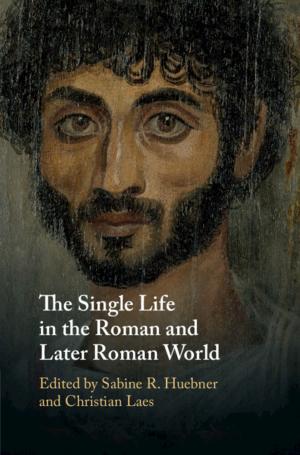The Cambridge World History of Slavery: Volume 1, The Ancient Mediterranean World
Nonfiction, Social & Cultural Studies, Social Science, Discrimination & Race Relations, History, Ancient History| Author: | ISBN: | 9781316183625 | |
| Publisher: | Cambridge University Press | Publication: | March 7, 2011 |
| Imprint: | Cambridge University Press | Language: | English |
| Author: | |
| ISBN: | 9781316183625 |
| Publisher: | Cambridge University Press |
| Publication: | March 7, 2011 |
| Imprint: | Cambridge University Press |
| Language: | English |
Volume 1 in the new Cambridge World History of Slavery surveys the history of slavery in the ancient Mediterranean world. Although chapters are devoted to the ancient Near East and the Jews, its principal concern is with the societies of ancient Greece and Rome. These are often considered as the first examples in world history of genuine slave societies because of the widespread prevalence of chattel slavery, which is argued to have been a cultural manifestation of the ubiquitous violence in societies typified by incessant warfare. There was never any sustained opposition to slavery, and the new religion of Christianity probably reinforced rather than challenged its existence. In twenty-two chapters, leading scholars explore the centrality of slavery in ancient Mediterranean life using a wide range of textual and material evidence. Non-specialist readers in particular will find the volume an accessible account of the early history of this crucial phenomenon.
Volume 1 in the new Cambridge World History of Slavery surveys the history of slavery in the ancient Mediterranean world. Although chapters are devoted to the ancient Near East and the Jews, its principal concern is with the societies of ancient Greece and Rome. These are often considered as the first examples in world history of genuine slave societies because of the widespread prevalence of chattel slavery, which is argued to have been a cultural manifestation of the ubiquitous violence in societies typified by incessant warfare. There was never any sustained opposition to slavery, and the new religion of Christianity probably reinforced rather than challenged its existence. In twenty-two chapters, leading scholars explore the centrality of slavery in ancient Mediterranean life using a wide range of textual and material evidence. Non-specialist readers in particular will find the volume an accessible account of the early history of this crucial phenomenon.















